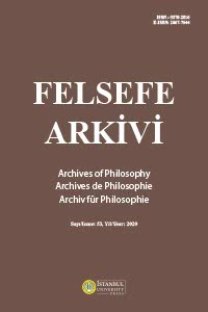About Popper's Requirement of Consistency
Popper restricted his definition of falsifiability to consistent theories through what we may call his requirement of consistency. His main argument was that an inconsistent theory does not distinguish the sentences that corroborate it from those that contradict it, for all sentences follow from it. I propose to replace this requirement by the more basic requirement that the classes of potential corroborators and falsifiers of a theory do not overlap. This results not only in an unrestricted definition of falsifiability but also in some inconsistent theories being falsifiable whenever that inconsistency is not located among its observational statements. Although this assumes a restriction of the principle of explosion or ex contradictione sequitur quodlibet (ECQ), it does not depend on any particular system or approach of paraconsistent logic. Finally, I propose to define the class of potential refuters of a theory, which is obtained by subtracting the class of potential corroborators from the class of potential falsifiers. Given that, by definition, the classes of potential refuters and corroborators of a theory do not overlap, it immediately follows that some observationally inconsistent theories are refutable in this sense. This establishes the bases for a new and more general formal theory of falsifiability of scientific factual/empirical theories.
Keywords:
Falsifiability, refutability, paraconsistency, dialetheism, theory observation sentence,
___
- da Costa, Newton Carneiro Affonso. Ensaio sobre os fundamentos da lógica 2nd ed. São Paulo: Hucitec, 1994.
- Hempel, Carl Gustav. “The irrelevance of the concept of truth for the critical appraisal of scientific theories.” In Selected Philosophical Essays, herausgegeben von Richard Jeffrey, 75–84. Cambridge: Cambridge University Press, 2000.
- Popper, Karl Raymund. Logik der Forschung: Zur Erkenntnistheorie der modernen Naturwissenschaft. Wien: Springer, 1935.
- Priest, Graham. Doubt Truth to be a Liar. Oxford: Clarendon Press, 2006.
- ISSN: 0378-2816
- Yayın Aralığı: 2
- Başlangıç: 1945
- Yayıncı: İstanbul Üniversitesi
